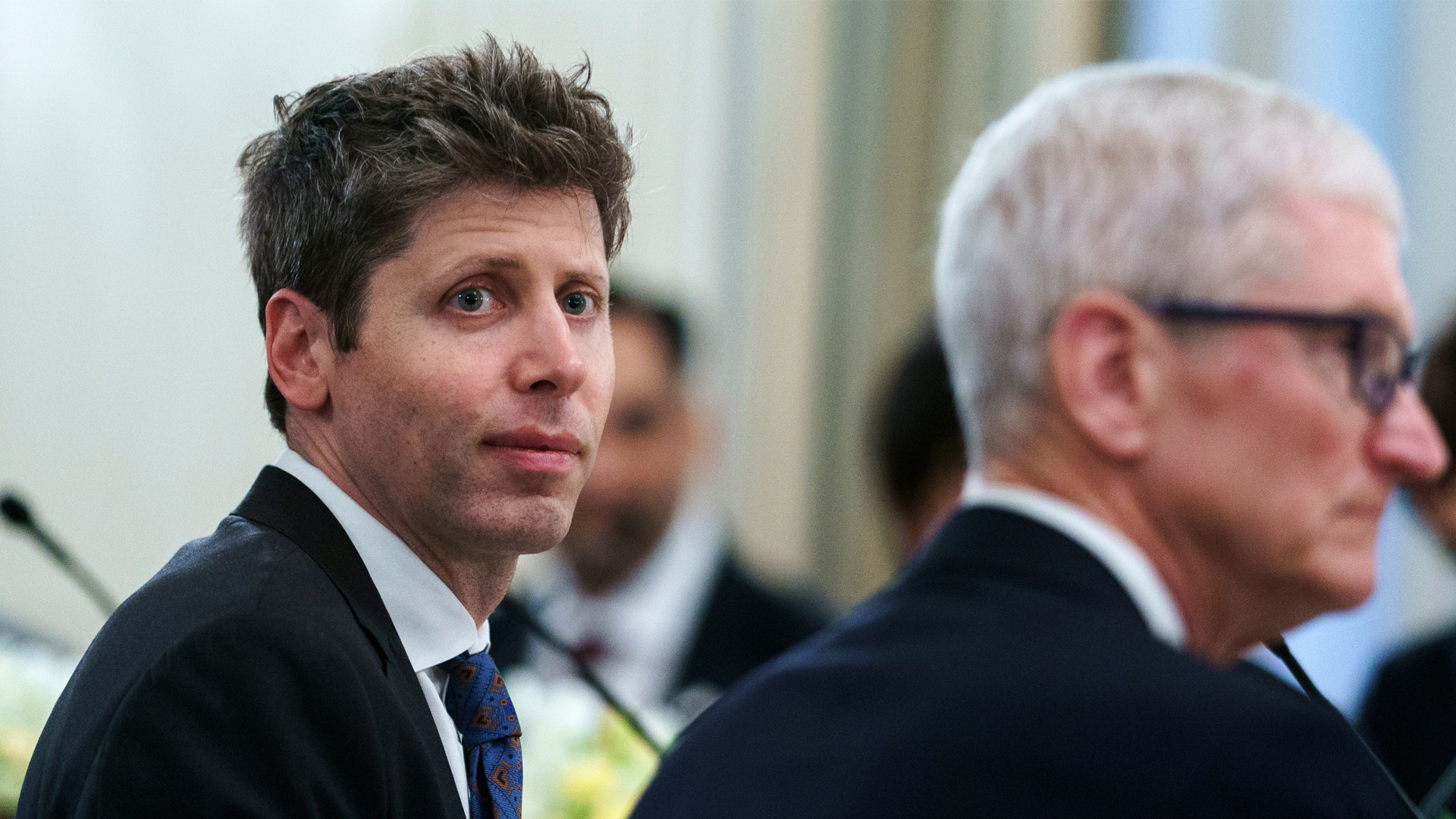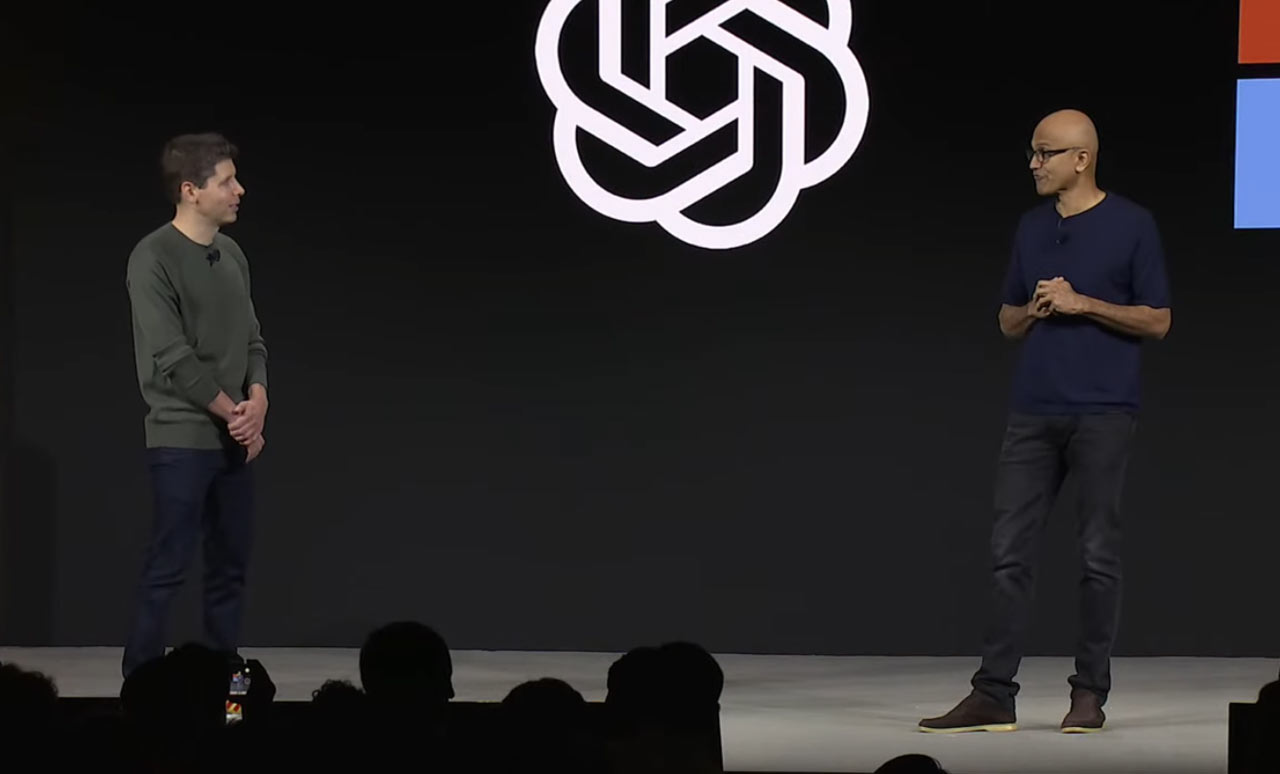OpenAI makes flurry of deals in drive towards for-profit model — AI giant teams up with Nvidia, Luxshare, Apple, and more
Seemingly unshackled from Microsoft, OpenAI's major drive towards a high-value IPO begins.

Following its joint announcements of major UK investments last week, ChatGPT-maker OpenAI has kicked off this one with a slew of new deals to enhance its own capabilities and increase its valuation ahead of a potential IPO. The company struck a deal for Nvidia hardware worth upwards of $100 billion, a deal with Chinese firm Luxsure to begin building consumer AI devices, and there are several negotiations said to be ongoing with other Chinese Apple suppliers, according to CNBC.
The story of OpenAI in 2025 has been one of aggressive expansion and incredibly optimistic projections about where the industry is headed and the significant role OpenAI is expected to play in it. Despite the company being structured as a non-profit and its yearly revenue projections topping out at just under $13 billion (following a $5 billion loss in 2024), it has announced investments worth hundreds of billions of dollars in data center infrastructure. These include the US-based Stargate scheme and the Stargate UK project, amongst other international investments.
For these kinds of investments to be possible, OpenAI needs to restructure as a for-profit company, which it can now do after the recent progress in its Microsoft negotiations. It also needs the cash generated from a potential IPO, with some estimates already valuing the company at over $500 billion, despite its lack of any kind of actual profitability.
In reality, the bulk of that valuation comes from the confidence of other major tech companies. Microsoft is already one of the largest OpenAI investors, but now Nvidia is investing up to $100 billion in OpenAI too. Though that may well be a form of circuitous, parasitic relationship where Nvidia invests money in OpenAI, so it can, in turn, purchase Nvidia hardware for its various data center projects.
Crucially, however, this deal also marks OpenAI as one of the first customers for Nvidia's next-generation hardware. This deal will see Nvidia invest an initial $10 billion once the deal is agreed upon, with the first Nvidia hardware set to be delivered in late 2026. These chips will be Nvidia's next-generation Rubin architecture, likely offering significant performance and efficiency advantages over existing Blackwell GPUs.
More Nvidia investment will be forthcoming as further gigawatts of computing power are set up, with the final project said to equate to around 10 gigawatts of AI compute power. The electricity use alone would be enough to power over 8 million homes.
Ouroboros AI

This deal further raises the spectre of the AI industry somewhat funding itself while driving up the valuations of each of the involved companies. No matter how you look at it, it hints at a bubble, which OpenAI CEO Sam Altman accepts is very real.
"On the one hand [this deal] helps OpenAI deliver on what are some very aspirational goals for compute infrastructure, and helps Nvidia ensure that that stuff gets built," said Bernstein analyst Stacy Rasgon, via Reuters. "On the other hand, the 'circular' concerns have been raised in the past, and this will fuel them further."
Nvidia, Microsoft, Intel, OpenAI, Oracle, CoreWeave, and a range of other multi-billion and trillion-dollar companies have all announced major investments in each other's companies and services over the coming years. Although there are very real services these companies can offer each other, the kind of AI projects they all want to launch will require incredible infrastructure development, which will require Herculean levels of investment. This raises concerns about whether the funds will be available when the time comes to actually pay up.
There is the very real potential of the AI industry becoming an unsustainable bubble. When those have burst in the past, they tend to take entire companies with them. If anything like that happens before OpenAI (and others) can realize their goals, they could be left with enormous promises and balance sheets that are deep in the red.
A physical path to profitability
Alongside its drive towards IPO cash generation, OpenAI is also looking to diversify as it searches for a viable profit model for its soon-to-be for-profit company. One of those could be hardware development. It hired the former head of Meta's Orion augmented reality glasses project in November last year to head its consumer devices and robotics divisions. It's also alleged to be in talks with Goertek, a Chinese company that builds Apple's AirPods and other smart devices.
In a more tangible endeavour, it's now struck a deal with fellow Chinese Apple supplier, Luxshare, to build a smart-speaker-like device to use with ChatGPT. Similar to the smart speakers made by Apple, Amazon, and Google for their Siri, Alexa, and Google Assistant smart assistants, OpenAI sees ChatGPT as a direct competitor for these kinds of tools and seems set to build out smart devices that can leverage the technology in a more physical sense.
According to The Information, Luxshare is already working on prototypes with a plan to launch a viable gadget in late 2026 or early 2027.
OpenAI previously partnered with Apple product-design icon, Jony Ive, lending further credence to the idea of OpenAI pivoting towards hardware as a potential avenue towards increasing both its profitability and physical presence in people's everyday lives.
Follow Tom's Hardware on Google News, or add us as a preferred source, to get our up-to-date news, analysis, and reviews in your feeds. Make sure to click the Follow button!

Jon Martindale is a contributing writer for Tom's Hardware. For the past 20 years, he's been writing about PC components, emerging technologies, and the latest software advances. His deep and broad journalistic experience gives him unique insights into the most exciting technology trends of today and tomorrow.
